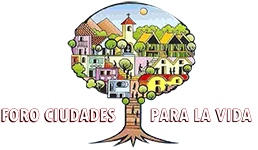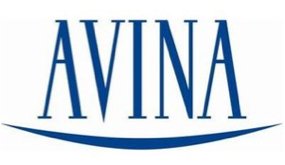Vision
We want cities for life which are expressions of sustainable development and provide a good quality of life for their inhabitants. Cities which provide a healthy, safe, productive and supportive environment. Cities which are in harmony with the surrounding environment, cultural traditions and spiritual values, taking into account the diversity of their country.
We want cities for life with which people can identify themselves and participate actively in their development. Cities in which people are proud of their culture and the environment in which they live.
Mission
We are a national network set up as a non-profit civil association consisting of three kinds of institutional actors: local governments, universities and civil society organizations (NGOs, grassroots organizations and business associations). With the participation of these actors Foro generates alliances and provides a space in which common goals can be pursued.
We seek to encourage, raise awareness, facilitate and promote opportunities for consensus to develop and manage our cities in accordance with the principles of the UN’s Agenda 21, and to support training institutions to do the same thing.
The joint activities of the Forum are focused on research, policy advocacy, leadership training and developing programs for sustainable urban development. In addition, Foro partners run specific projects in their local areas in line with our mission and objectives.
Main achievements
Foro’s main achievements after 18 years of working together:
- Capacity Building: through seminars, masters degrees, postgraduate courses and e-learning on issues related to city-wide sustainable development such as Urban Environmental Management, Local Agenda 21, Territorial Planning, Sustainable Construction, Cities and Climate Change, Water Governance and Green Infrastructure.
- The Social Construction of Knowledge and its inherent dissemination: building collective knowledge through case studies, manuals, handbooks and guides (from first-hand experiences and lessons learned from our members) as well as the publication of books, mailing lists, our web page and our participatory research projects.
- Creation of streams of opinions in favour of Integrated Territorial (Spatial) and City-Wide Participatory and Concerted Planning, budgeting and implementation. Planning in line with sustainability approaches which take into account environmental issues, for example: the responsible use of natural resources.
- Contribution to the creation of a Multiple Level Institutional Framework (National, Regional and Local) for city environmental management. Using political incidence campaigns, formulation of Sustainable Development Plans (and other related plans such as Climate Change Strategies) at city level, nation-wide law proposals, municipal laws, debates, forums, opening spaces for dialogue and consensus building.
Some Proyects
(2011 – 2014)
Urban chances. The growth of cities and the challenge of sustainability Comparing rapidly growing cities in emerging economies.
Chance2Sustain is a research project examining how governments and citizens in Peru, India, South Africa and Brazilian cities with differing patterns of urban economic growth make use of participatory (or integrated) spatial knowledge management to direct urban and water governance facing climate change towards more resilient and sustainable development. A legal framework providing for fiscal decentralisation and funding, for instance, is a strategic support. The research tackle issues which have not yet been analysed much locally, and certainly not comparatively across different socio- political contexts, although it is a strategic question, given the inherent trade-offs and potential political conflicts in combining (and integrating) environmental, social and economic goals (within sustainable development). Therefore, the programme focuses on ten cities with contrasting economic and political conditions, with the main scientific objective of developing a model on participatory spatial knowledge management to direct urban governance to sustainable development. Among its partners are UvA, EADI, CEIAS-CNRS, NIBR, UKZN, Cities for Life Forum, SPA and CEBRAP.
Sustainable water management and waste water in urban centers in growth coping with climate change. Concepts for Metropolitan Lima- Peru .
LiWa focusses on the development and application of fundamental procedures and tools for participatory decision making, based on informed discussions for sustainable planning and management prioritizing one of the crucial lifelines – water and sanitation and the promotion of water related energy efficiency. This is being done in Lima, with particularly adverse boundary conditions due to the expected impacts of climate change. Research carried out in the project builds upon previous studies and investigations of the consortium partners. Furthermore, potential technologies of wastewater disposal and treatment have been analysed. Also, a preliminary version of a macro-modelling tool, simulating water and wastewater fluxes in Lima, facilitating analysis of scenarios and variants, assisting stakeholder discussions and decision making, has been set up as well as the development of water tariffs proposals and the strategy for ecological infrastructure for Lima city as a whole.
Development Strategy for Climate Change Adaptation for the Sustainable planning of Lima.
The aim is to promote and contribute to the development of a concerted process for the preparation of the Adaptation Climate Change Strategy for Metropolitan Lima advising and coaching the MML / PGRLM team and the Technical Group Climate Change to compile, systematize and analyse the information about Lima climatic vulnerability of Lima before the climate variavility facing the plausible scenarios as a basis for the development the Strategy and its Action Plan for future implementation.



